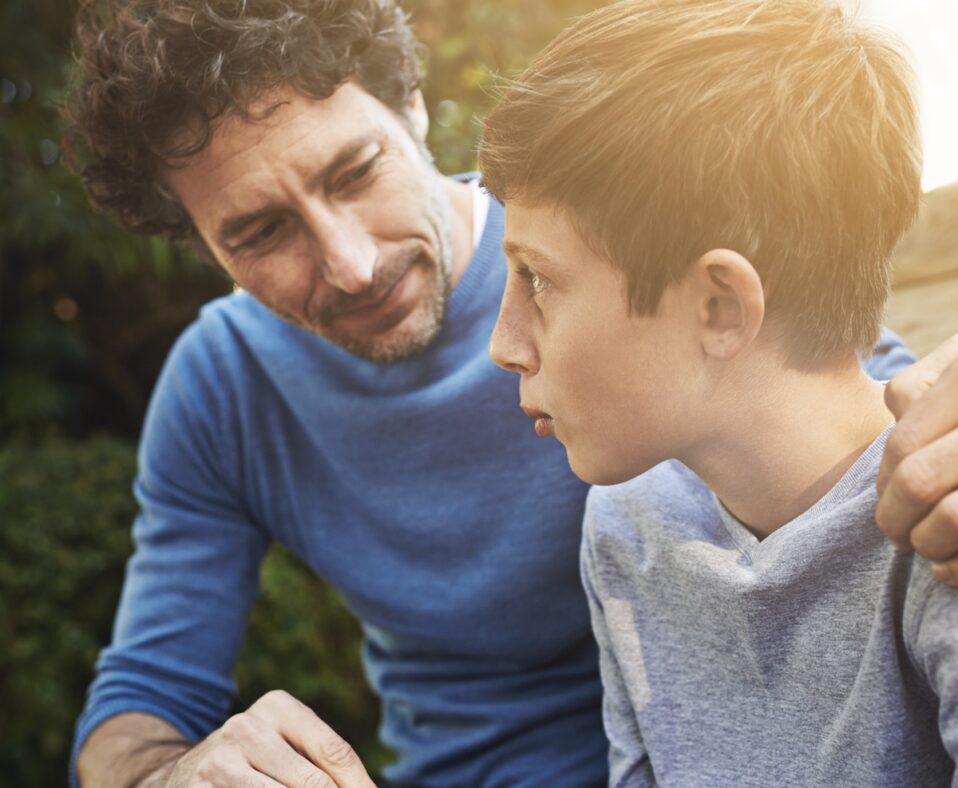By Dana Sheanin, CEO of Jewish LearningWorks
Since the crisis in Israel began, educators have spent countless hours thinking about how to care for the children, teens and young adults we serve every day. We know that parents and grandparents — many of you — have matched those educators hour for hour, and then some. We are all struggling to find the right words, the right message, the right outcome. This is particularly true with adolescents and young adults whose lived experiences can feel distant from our own, and whose perspectives often take us by surprise.
In anticipation of the more spacious weeks at the end of the calendar year, and the conversations you may be having with the children, teens and college students in your lives, we suggest focusing on the emotional well being of our families, rather than trying to explain, protect, come to agreement.
Dr. Rick Hanson, author of Resilient suggests that there are four building blocks of well being:
- Recognizing what is true about ourselves
- Resourcing to address what we encounter
- Regulating our emotions
- Relating to others around us
Concrete strategies for how to approach these building blocks can help you and the children in your life immeasurably during this time filled with unanswerable questions, grief, fear, and sadness.
Recognizing: How Are You Feeling Today?
One of our favorite teaching tools at Jewish LearningWorks is a mood meter. It can be helpful to ask children of all ages, and even adults in your life, to take a look at this visual, and concretely name their feelings.
Consider what is possible right now. Another important tool for recognizing what is true about ourselves is reminding ourselves that today is just today. What we feel capable of saying, doing or addressing today will be different tomorrow, next week and next month. It can be useful to remind our children of this, when a difficult moment feels as though it is a permanent state of being.
Resourcing: What We Invite In
Whether your child is on a local elementary school campus, or at a university in another state, they are likely to have difficult conversations about Israel this winter. Many of these conversations will take place online, rather than in person. Parents play a critical role with younger children in curating exposure to social media, and with teens and college students in helping them to process what they are reading or seeing online. Responsible media literacy is a muscle we can help them develop. We can also remind them they don’t need to have all the answers, and don’t need to take a position on any issue before they feel ready.
For some of us, prayer is a resource to draw upon at times like these. Our colleagues at Sefaria have recently collected prayers for times of distress which can be shared with teens and young adults for moments when words fail us.
Regulating: Responding vs Reacting
We know that when we are in a heightened state of emotion, productive conversations and good decisions are too often out of reach. As adults with fully developed frontal lobes, it can be hard even for us to respond, rather than react. This is still more difficult for teens and young adults, who are learning how to regulate their emotions. Reminders to slow down, take breaks, get outside, exercise, and eat are essential. We can ask our kids to think about how they want to take care of themselves, and help them brainstorm the obstacles they see to doing so. Are there people they need to set boundaries with? Events they might want to skip? Decisions they need to rethink? Classes they might want to drop? While designed for teachers, this toolbox for care is easily accessible for parents as well.
The first step in regulating our emotions is becoming aware of them, and it is often the hardest. There are countless resources available to teach mindfulness, which can be shared with teens and young adults open to such practices. A favorite of ours includes these 31 activities for college students.
Relating: Staying Connected
Relationships are of supreme importance to older children and young adults, whose social ties are their world. Friendships may have been damaged, or surprising perspectives revealed since October 7. Parents can offer a compassionate and generous ear, avoiding judgment to the extent possible. We can invite our children to seek out their most supportive friends, teachers, mentors, or in the case of college students, their local Hillel. We can also encourage volunteerism, reminding them that taking care of others offers an opportunity to fill their own spiritual tank.
Looking for Additional Support?
If you’ve not yet had a chance to take a look at our resource page for talking with children (of all ages) about the war, we invite you to do so often as we update if with new articles and support tools.
And, to explore a Jewish lens on Dr. Hanson’s work, we invite you to take a look at the 2020 piece, Forging a Jewish Path to Resilience.



